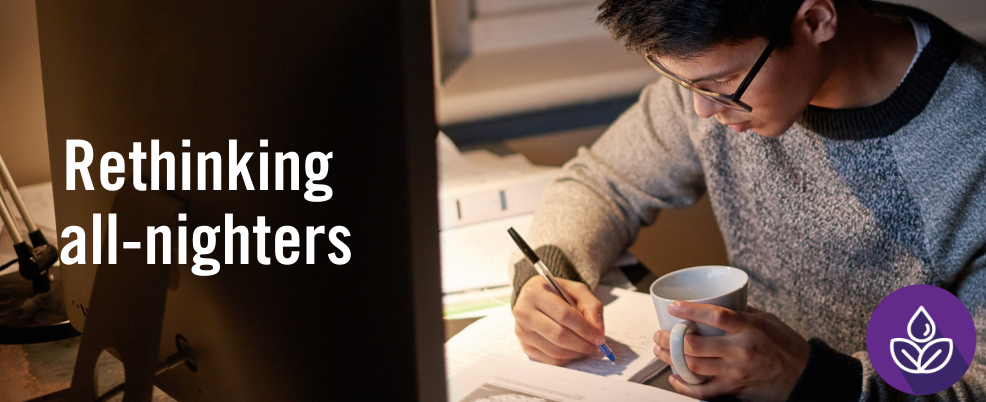Rethinking All Nighters
Sometimes at the end of the semester, it feels like the only way to submit your assignments, study and have any semblance of a life outside of school is to pull an all-nighter. It might seem like a little sleep is a small sacrifice in the pursuit of academic excellence, but the effects of acute sleep deprivation generally kick in after 16 to 18 hours of being awake and get progressively worse with each proceeding hour.
The first signal that your body is overtired will be a sluggish mind. Your reaction time will begin lagging around hour 18 and after a full night without sleep, it will nearly triple—which, for context, is about the same as being legally drunk. Your ability to form memories will start deteriorating, and from hour 18 onward, your decision-making and math-processing abilities and your spatial awareness slowly deteriorate. Seems a little counterproductive if you are staying up to do school work, doesn’t it?
Stay up longer than 24 hours and your brain will soon start to force sleep upon you. Though you will appear to be awake—walking, talking, eyes open—your brain will quite literally put itself to sleep for ten to 20 seconds at a time. During these microsleeps, you can’t process what you’re seeing around you. Your brain goes on on autopilot. So, if you’re driving, you might realize that you missed your exit and don’t remember the last ten minutes. And that’s really scary stuff because it means you’ve been asleep for moments when you really should be awake.
Stay up for longer than 35 hours and you will start behaving irrationally. When you’re up for that long, the amygdala becomes more reactive to negative stimuli or experiences, while also limiting communication with the part of the brain that regulates emotion and contextualizes experiences. In other words, you’re more reactive and judgmental to the people and events around you, and your brain loses its natural ability to run things through a filter or any internal voice of reason.
If this has you rethinking your exam time study habits, it is not too late to adopt new habits, visit the Student Success Zone for resources on how to study effectively (and still get a good night's sleep).




